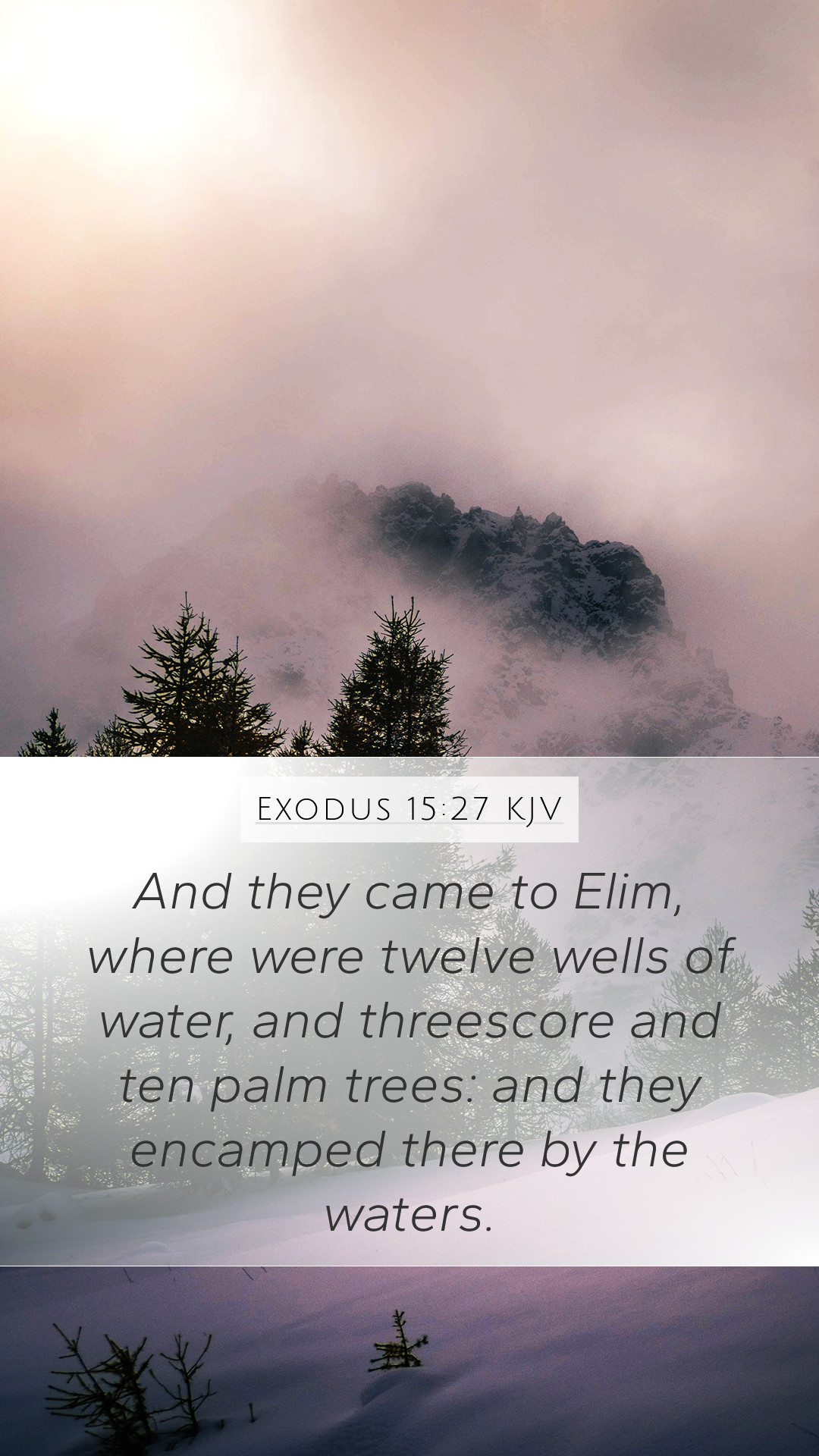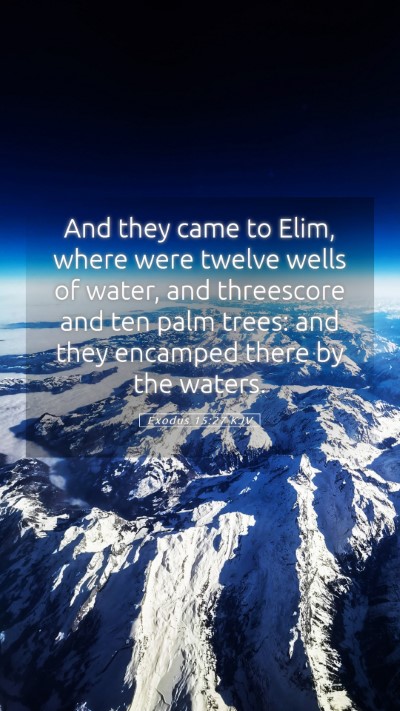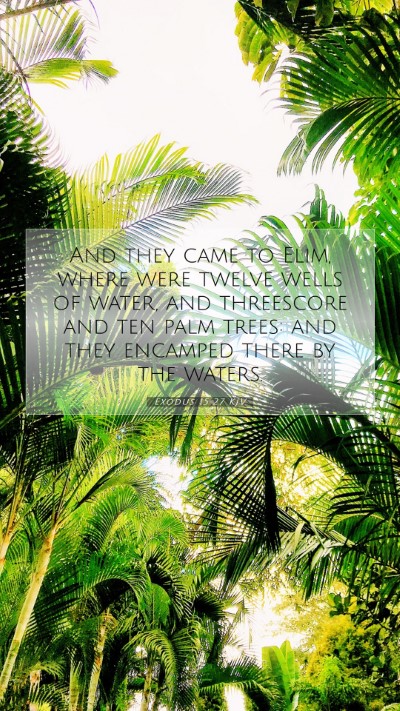Understanding Exodus 15:27
Exodus 15:27 states: "Then they came to Elim, where there were twelve springs of water and seventy palm trees; and they camped there by the waters." This passage provides insight into the Israelites' journey after the miraculous crossing of the Red Sea. The verse highlights God's provision and sustenance for His people in the wilderness, which can be examined through various lenses of Bible verse meanings and interpretations.
Insights from Public Domain Commentaries
Various esteemed biblical scholars have provided deep analysis and Bible verse commentary on this verse:
-
Matthew Henry's Commentary:
Matthew Henry emphasizes the mercy of God in leading the Israelites to Elim, a place of rest and abundance amidst their journey. He notes that the twelve springs symbolize divine blessing and provision, representing the tribes of Israel and the covenant that God made with them. Moreover, the seventy palm trees indicate a place of shelter and protection, reminding the faithful of God's care during their wanderings.
-
Albert Barnes' Notes on the Bible:
Albert Barnes highlights the significance of Elim as a rest stop for the weary Israelites. This oasis not only provided physical sustenance but also served as a spiritual refuge. He further explains that the presence of water in the desert signifies God's nurturing nature, where every spiritual thirst is quenched. The mention of palm trees is particularly important as it symbolizes victory, peace, and abundance—a reminder of the prosperity awaiting the obedient follower of God.
-
Adam Clarke's Commentary:
Adam Clarke focuses on the geographical and historical context of Elim, mentioning that it was likely located near the Red Sea and played a vital role in the Israelites' journey to Sinai. He discusses how the twelve springs can be interpreted as God's fulfillment of His promises during times of need. Clarke further connects this verse with deeper theological implications, asserting that these springs symbolize the spiritual refreshment that believers find in God's presence and care.
Key Themes in Exodus 15:27
The verse encapsulates several essential themes that resonate throughout the biblical narrative:
-
Divine Provision:
God’s provision is evident as He leads His people to an oasis, highlighting the importance of relying on Him for sustenance both physically and spiritually.
-
Communal Blessing:
The twelve springs can be understood as a blessing for the twelve tribes of Israel, showing God's promise to His people as a whole.
-
Rest and Refuge:
Elim serves as a critical resting place, emphasizing the necessity of finding spiritual and physical rest in God during life's journey.
Applications of Exodus 15:27
This scripture can be applied to various situations in life, encouraging readers to look for God’s provision even in desolate times. Here are some practical Bible study insights derived from this verse:
-
Trust in God's Timing:
Just as God provided for the Israelites, believers today can trust that God knows their needs and will provide for them in due time.
-
Finding Refuge:
In times of trouble, seek solace in God, just as the Israelites found shelter in Elim.
-
Recognizing Community:
This verse serves as a reminder of the importance of community and collective blessings within the body of Christ.
Cross References
Exodus 15:27 is closely related to several other verses that echo its themes of provision and God's faithfulness:
-
Exodus 16:12: "I have heard the grumbling of the Israelites; tell them, 'At twilight you will eat meat, and in the morning you will be filled with bread. Then you will know that I am the Lord your God.'"
-
Psalm 23:2-3: "He makes me lie down in green pastures, He leads me beside still waters; He restores my soul."
-
John 4:14: "But whoever drinks the water I give them will never thirst. Indeed, the water I give them will become in them a spring of water welling up to eternal life."


